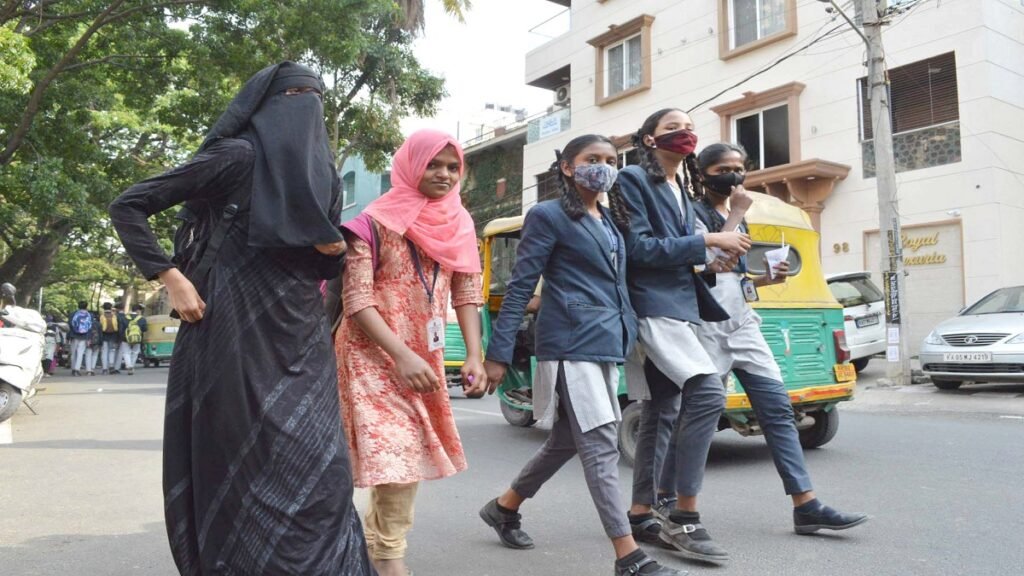A bench comprising Justices Hemant Gupta and Sudhanshu Dhulia reserved the judgment after hearing the arguments from the counsel representing the state government, teachers, and the petitioners, who moved the apex court challenging the high court judgment.
NEW DELHI — After 10 days of marathon hearing, the Supreme Court on Thursday reserved the judgment on a clutch of pleas challenging the Karnataka High Court verdict which refused to lift the ban on hijab in educational institutions of the state.
A bench comprising Justices Hemant Gupta and Sudhanshu Dhulia reserved the judgment after hearing the arguments from the counsel representing the state government, teachers, and the petitioners, who moved the apex court challenging the high court judgment.
Rejoinder submissions
Senior advocate Dushyant Dave, representing some of the petitioners, while making rejoinder submissions said for those who are believers, hijab is essential and for those who are not believers, it is not essential. He added that there was no cause to issue guidelines in February this year. The bench told Dave if it is commenting on the high court’s path, it is because the petitioners took it to that path.
Senior advocate Huzefa Ahmadi, representing some of the petitioners, submitted that the argument of PFI was not raised before the high court and it is an argument introduced to create prejudice.
Solicitor General Tushar Mehta, representing the Karnataka government, had alleged that till the year 2021, no girl student was wearing any hijab and uniform being part of essential discipline in schools was being scrupulously followed. However, then a movement started on social media by an organisation called Popular Front of India (PFI) and the movement was designed to create an agitation. Mehta added there were messages on social media to begin wearing hijab and this was not a spontaneous act, instead it was a part of larger conspiracy, and children were acting as advised.
The petitioners’ counsel cited the circular of the Karnataka government, and added that there is no mention of any PFI activity and rather, the circular cites observance of religious practices as a “hindrance” to unity and equality.
Department of Education guidelines
Dave submitted that the Department of Education had issued guidelines for academic year 2021-2022, and according to it uniform is not compulsory. Therefore, Karnataka Government Order dated February 5 could not supersede these guidelines, he added.
Dave submitted that for some people it is an essential practice, some people are more religious, some are more tolerant and it is an individual choice, and that is why the essential religious practice test was rejected long back.
The Karnataka government on Wednesday told the Supreme Court that there is no restriction on wearing hijab on the school campus, however it is only restricted in the classroom while defending its decision to disallow hijab in classrooms of pre-university colleges. The state government also emphasised that it has not touched any “religious aspect” in the hijab ban row. — IANS

